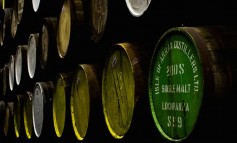It has now been several years since the Internet took it over from the cellar-men concerning refined advice on whisky and its rarest bottlings. The globalization of independent bottlers and the imbalance in distribution reinforced a more scattered diffusion of information throughout the world. However, how does one find its way within this analytical stream, that we’ll knowingly maintain on whisyandco.net, and which looks more like a relentless flood than like a peaceful rivulet?
“Hey, did you see Serge Valentin’s (Whiskyfun) last notes?”, “How did Ruben (Whiskynotes) rate this one?”, “What’s its overall rating on Whiskybase?”.
This kind of speech has become a leitmotiv for amateurs of good old drams. Ok, but factually, what are those new tasting dogmas really worth? Behind the idea of consulting different opinions, are individuality, fair purchasing and pleasure really at the heart of the debate? Let’s try to find some answers.
Description: the concept of sensory subjectivity
If every amateur gladly recognizes the highly personal characteristic of tastes in whisky, the expertise notion sometimes seems to take the upper hand. We have thus come into a referential era where the landmarks have become a few protagonists around the world. Of course, we don’t judge: they’re not to blame here. But the idea of absolute truth insidiously gained weight. With all the opinions you can now find online, a mimetic or an a priori effect can appear. A good blind test session should be enough though to convince you of the pointlessness of exterior references in your tasting.
O you, dear amateur, trust your senses, cause if the aroma perception will often be close, the appreciation is attached to cerebral networks particularly linked to your memory.
Inside our affective brain (the tonsil) lies the recognition of smells (“Proust’s Madeleine” is a good example of it). Hence, emotions often get linked to our senses facing our whiskys, and we sometimes create bridges reinforcing, positively or negatively, our tastes (rarely by a childhood memory, more often by recent memories). This way, caricaturing a bit, if you used to relish your mother’s lemon pie, it’s more than likely that you’ll enjoy “zesty” whiskys. Beyond the Nose, the mouth flavors work the same way and then whisky, like gourmet cooking, becomes about emotion and experience.
Habits also come from what we experiment. Facing this, curiosity is your best ally to describe your whiskys, and to understand the impressions others may have. Orange, lemon, yuzu or mandarin? Hard to tell if you only ate half of them. Elementary, don’t you think?
After this little speech, you’d be tempted to tell me that the published tasting notes aren’t reliable for each and everyone of us, right? Well, it is necessary to put things into perspective, as we can position ourselves in relation to an other taster who, if he’s experienced, will always have an interesting point of view. Sensitivities to specific flavors obviously come out when you read the comments, and by comparing your own notes with the ones published, it is easy to find patterns.
By now, I think you’ve got it: a tasting note isn’t supposed to be taken literally. Surely, the different perceptions will have a lot in common. However, it is important to focus on the global structure of the dram, on its principal features rather than on one element you didn’t smell or tasted. Your past will then guide you towards the more pertinent choice. Hence descriptions are not professional dogmas (even if one needs to be an old hand to be relevant) but a flexible support which needs to be smartly taken into account.
Grade: an indisputable notion?
The shortcut would be too easy. Why bother to search what is a whisky’s profile if we can see by a simple number if this one is worth it? Remember that a grade is only an individual appreciation relying on one person’s preferences coming from his own life, his experience, his meetings…
Sellers must have realized its impact, given the fact that as soon as a superb grade is granted by the big shots online, the bottles sell like hot cakes. But are these purchases really determined by the quality of the whisky? Not only. There is a comforting effect in knowing that we’ll be able to sell the bottle back later, arguing that X rated it formidably. There is no point in joining a frantic race for the well graded products. There is no point either in running after the most wanted ones. But in a speculative spirit world, unregulated by a die-hard “supply and demand” law, it seems obvious that these practices take more and more space. The grades then have a financial and commercial implication whereas their goal is only to give an opinion on a given whisky type.
We the can say that the description and the grade are only one block which scission is prejudicial. If a very woody whisky gets a 92/100 while you’re sensitive to this component, what would be its value for you? We all need to center these readings on pleasure, which will logically be conveyed by the review of the whisky, which is what you want in your next glass.
Reading with a wise eye is probably the best advice we can give you to find your way inside the notation jungle. Of course, nothing will replace testing those beverages, and nothing will replace sharing it with other enthusiasts. More than words, we enter an epicurean sphere which doesn’t need to be altered by a too rigoristic vision of the art of drinking. In conclusion, we need to let the whisky live. Tasting notes are precious allies but we need to observe them through the prism of our inclinations, thoughtfully.
At Whiskyandco.net, we’ll never pretend to be holders of an absolute knowledge. We are simply enthusiasts sharing their expertise and trying to draw you a map of this vast malted universe.




Leave a Reply